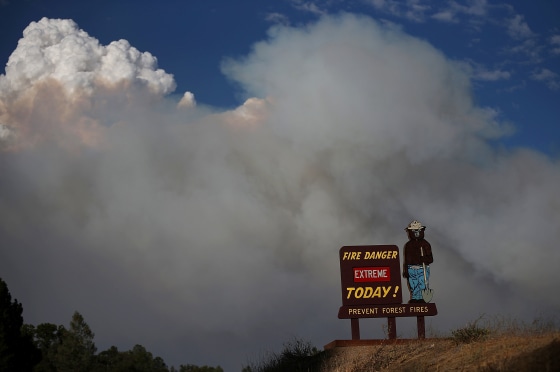WASHINGTON — Congress passed a $1.4 trillion government spending measure Monday that includes $900 billion in coronavirus relief but is also chock-full of miscellaneous provisions, a massive year-end bill after months of inaction.
The 5,593-page bill would fund the government through September and provide $600 stimulus checks for qualifying families and individuals, enhanced unemployment benefits and support for small businesses. It also touches on Smokey Bear, horse racing and the Dalai Lama.
Some of the quirky provisions were in bills that had been introduced in Congress earlier in the year. But lawmakers often delay passing bills until the end of the year, when they can be rolled into one massive spending bill as members face pressure to fund the government before heading home for the holidays.
"It's the end of the year, everything gets dumped in, and that's the best way to get passage. It highlights how hard it is to get anything through," said Doug Heye, a Republican strategist who has worked with congressional leaders.
"But when you get to this point — this bill wasn't written. It was basically compiled," he said. "You're taking things that have passed from one chamber or another and putting them all in so it has enough support."
The final text of the bill was not released until shortly before votes were held, making it impossible for lawmakers to familiarize themselves with the entirety of what they were voting on.
"Members of Congress have not read this bill. It's over 5000 pages, arrived at 2pm today, and we are told to expect a vote on it in 2 hours. This isn't governance. It's hostage-taking," Rep. Alexandria Ocasio-Cortez, D-N.Y., tweeted.
Here are some of the provisions that made it into the bill, which President Donald Trump is expected to sign in the coming days.
Protection from surprise medical billing
The spending bill includes bipartisan language that would protect Americans from most surprise medical bills, which cost consumers millions of dollars a year and send some spiraling into debt.
Surprise billing occurs when, during a hospitalization, an out-of-network provider is unexpectedly involved in a patient's care, charging a fee typically higher than what a health care plan covers. Under the new rules, health care providers would have to work with insurers to settle on a price.
The change would go into effect in 2022. The rule would not apply to charges for ground ambulances.
Dalai Lama
The bill has a section that reaffirms the rights of Tibetans to choose a successor to their spiritual leader, the Dalai Lama, and states that the Chinese government should not interfere in the process.
Economic and visa sanctions would be imposed against Chinese officials who interfere in the Dalai Lama's succession.
Fake 'Smokey Bear' no longer a crime
The bill would repeal a handful of oddball laws that are rarely enforced, including one that makes it a crime to misuse certain emblems, such as the U.S. Forest Service's "Smokey Bear" and "Woodsy Owl" characters, the Interior Department's Golden Eagle insignia, the 4-H Club emblem and the Swiss Confederation's coat of arms.
Although people who use the symbols would no longer face jail time, they could still be subject to civil lawsuits.
People who transport water hyacinths, alligator grass or water chestnut plants across state lines would also no longer face up to six months in prison.
Climate change
The bill would limit the use of a potent greenhouse gas in refrigerants and air conditioners and provide tax incentives for wind and solar energy. The bill would also allocate money for new research and development programs to tackle climate change.
It would be the most significant federal investment in green technology in a decade.
Horse racing safety
Senate Majority Leader Mitch McConnell, whose home state, Kentucky, has one of the most famous horse racing tracks in the world, pushed for a provision that would create national medication and safety standards for the horse racing industry, as well as an anti-doping and racetrack safety program.
The horse racing industry has been under scrutiny in recent years in part because of concerns that over-medication and doping were leading to the breakdowns and deaths of race horses.
Two new Smithsonian museums
Two new museums could be coming to downtown Washington thanks to the spending bill: the Women's History Museum and the National Museum of the American Latino.
Sen. Mike Lee, R-Utah, blocked legislation this month that would have established the museums, saying, "The last thing we need is to further divide an already divided nation within an array of separate but equal museums of hyphenated identity groups."
Illegal streaming would be a felony
It could soon be a felony for businesses to make money by pirating large amounts of copyrighted content and illegally streaming it, with the potential of up to 10 years in prison.
The bill is not meant to target people who use illegal streaming services, but rather those who pirate content to make money.
Sen. Thom Tillis, R-N.C., who first introduced the bill, has said the pirating industry costs the U.S. economy nearly $30 billion every year.
The group Fight for the Future, which opposes internet restrictions, also pointed to a provision that it said would allow the government to fine people $30,000 for sharing memes with copyrighted images.
The group's executive director said the provision would "threaten ordinary internet users with huge fines for everyday online activity."
E-cigarette restrictions
The U.S. Postal Service — already facing significant criticism for its handling of election ballots and holiday packages — would no longer be allowed to mail vaping products and e-cigarettes under the bill.
Border wall funding would continue
About $1.3 billion would be allocated to build Trump's southern border wall, the same as last year.
Lawmakers have held up legislation in the past over disagreements over border wall funding, which led to a government shutdown in 2018.

